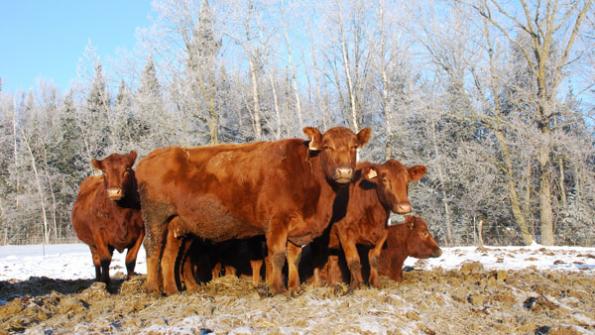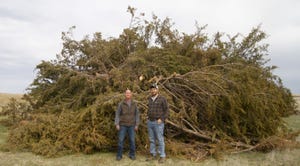How do you define profit? Then, how do you achieve it?
There are several ways to define profit. Question is, how to you achieve it?
December 1, 2016

Throughout my career, I worked with accountants who had definite instructions from our owners to collect financial information that would allow them to accurately report “profit and loss” according to GAAP (Generally Accepted Accounting Principles) and to file an accurate tax return to the IRS.
To that, we managers insisted that we be presented with financial information that would help us make better strategic and operational decisions. Our desire was to accomplish this with one chart of accounts and a single general ledger. We couldn’t always make that work and sometimes we didn’t get exactly the managerial information or presentation that we would like, but it was good enough.
I was trained as an agricultural economist and have continued my relationship with farm and ranch economists to this day. Many economists will tell you that most ranches lose money nearly every year. They will also tell you that many are “lifestyle” ventures which are subsidized with off-ranch income. Hearing these kinds of discussions, after having managed profitable ranches for the better part of 40 years, disturbs me.
What is profit? Dictionary definitions, economists’ definitions and accountants’ definitions are not in complete agreement. So, who do you agree with, and how do you proceed? Let’s discuss a little.
One of the dictionary definitions defines profit as “an advantage or benefit derived from an activity.” We must recognize that many who own small ranches, and there are many, don’t mentally or emotionally do their accounting the same way a typical business would. For example, they put their own labor on the returns side of the ledger. Part of their fun in life or enjoyment is going to the farm after work and working with the land or the livestock. They don’t call that a “cost” but rather part of the return for their investment in the farm.
They also get a lot of dual use of equipment. The farm pickup is also the vehicle they drive to their off-ranch job while their spouse drives the family car. The four-wheelers or side-by-sides are used for family fun and also used for ranch chores. The same might be said for horses. To me, those perks can legitimately be considered as non-cash returns to the business. How does formal GAAP accounting deal with that?
I’m not ready to buy that most of these small farms and ranches are unprofitable. If we don’t count the owner’s labor and don’t take a full load of depreciation, fuel and repairs for the dual use of pickups, four-wheelers, side-by-sides, horses and other sources of enjoyment; I think many of them will operate without taking money from the family living accounts. Some may even contribute cash to the family living account. They should; and if they don’t, they need to manage better.
These small farms can be the toughest competition for full-time operations. Think about it: they don’t care if the owner gets paid in cash for his labor. The enhancement to his/her quality of life is sufficient return.
Many of them are debt-free and operate simply. When full-time operators count costs the way they have to and pay themselves a salary or draw, the after-work farmers can be pretty tough competition. Some might even call that unfair competition.
However, I have no problem with it if they can run on internally generated cash and not depend on a continual infusion of cash from off-farm sources. Truth is that I have a real disgust for farm or ranch operations that are continually subsidized from off-farm sources if the land is paid for. They should, at the very least, be self-sustaining.
Ranch operations will not support large indebtedness. However, when you combine operating returns with land value appreciation on well-operated ranches, the combined returns will compare very favorably with or even exceed stock market performance if the land is paid for. I think it is wise to use excess earnings from any source to buy agricultural land. It is not wise to incur a lot of indebtedness (relative to assets) to buy land.
I have had a few consulting clients who had lost money for a number of years. Their question to me was, “Shouldn’t a ranch at least pay the property taxes and operating costs when it is free of debt?” They loved the ranch, but were tired of subsidizing it. My answer was always, “Yes!”
I don’t understand why anyone or any non-ag business would continue to subsidize any farm or ranch with money from family or business income that could be used for family or in a profitable investment. Ranches do not have to lose money.
Then there is the concept of “opportunity cost.” The idea is to charge yourself a market rate for assets and money used in the business, even if those assets are owned and paid for. Examples are land rent for the amount it could be leased out for, or to value your ranch-produced hay at market value or retained replacement heifers at market.
That begs some questions. If I sell this hay rather than keep it for my cows, how do I feed the cows and what would that cost? Or do we liquidate? If I sell my heifer calves rather than keep them for replacements, how do I replace cows and what will that cost?
The concept of considering opportunity costs is valid and should be considered. However, it should have no place in your accounting system unless your land is one business and the livestock and other enterprises are separate businesses.
It most often raises several follow-up questions for every opportunity cost question. To answer all of those questions usually requires significant fact finding and analysis. Opportunity cost questions should be asked and answered, but the implied alternatives should be considered outside of budget preparation. These questions are seldom easy to answer.
Bottom line—there can be several ways to define “profit.” However, if your ranch generates a positive cash flow year after year, the land is improving, your livestock and feed inventories are maintaining or increasing and you are taking care of debt service; it is profitable. In the meantime, I hope you pay yourself well in addition to just working for the fun of it.
About the Author(s)
You May Also Like
.png?width=300&auto=webp&quality=80&disable=upscale)


